Supply chain digitalization is the implementation of technologies that provide transparency and efficiency in all processes: from ordering raw materials to delivering a product to the consumer. In 2025, its role has become critical due to the increasing complexity of global markets, logistics and high expectations from customers. Companies can no longer rely on Excel, manual planning or fragmented management systems. They need solutions that integrate data from dozens of sources, predict risks and automate decision-making. In this article, we will analyze 20 companies that demonstrate what digitalization in the supply chain looks like in 2025.
Why Digitalization of the Supply Chain Matters in 2025
Digital Supply Chain Market is projected to grow from USD 21.13 Billion in 2025 to USD 42.22 Billion by 2034, exhibiting a compound annual growth rate (CAGR) of 7.99% during the forecast period (2025 - 2034). Additionally, the market size for the Digital Supply Chain Market was valued at USD 19.57 billion in 2024.
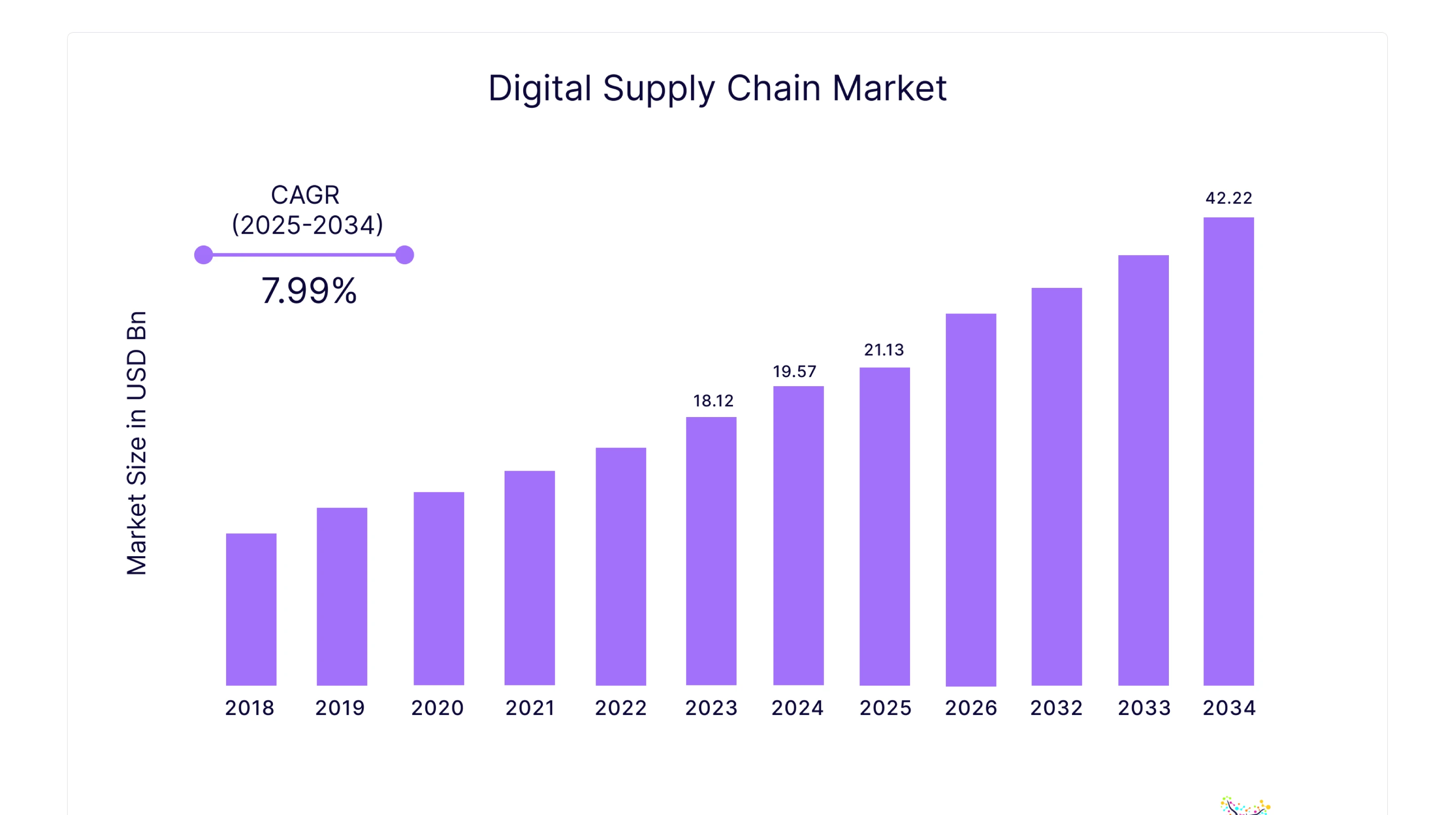
In 2025, supply chains are complex, dynamic systems with dozens of suppliers, regions, and risks. A single local failure can lead to the disruption of the entire production cycle. Digitalization makes it possible to predict, control, and react in real time. The key value is in data. Companies that have a single digital environment for supply management can see bottlenecks, optimize inventory, avoid overproduction, and improve service without increasing costs.
How We Selected the Top 20 Companies
The goal of this ranking is not to show big-name companies, but review those that are truly changing the approach to supply chain management. We assessed the functionality of the product/service, impact on the business, the flexibility of solutions and the level of technological maturity.
Evaluation Criteria
Innovation and technology
We analyzed the extent to which the company implements AI/ML, real-time analytics, process automation and end-to-end data integration. We looked for companies that offer cutting-edge technologies: artificial intelligence and machine learning for prediction, IoT for real-time data collection, cloud solutions for scalability and availability, and digital twins and blockchain tools for increased transparency.
Market presence
We assessed the scale of implementations, the stability of customer base growth, geography and industry specialization. Also, a company’s geographic and industry presence was considered—how broadly and deeply the platform is integrated across sectors and regions. A strong market position often indicates customer trust and the ability to maintain high quality standards.
Impact on efficiency and visibility
We considered real results: reducing operating costs, accelerating supply chains, improving forecast accuracy: how well the solutions improve operational efficiency, reduce costs, optimize inventory, and provide transparency at all levels of the chain. We evaluated how the technologies help gain real-time access to data and improve decision-making.
Case studies and results
The key factor is practical confirmation of effectiveness through open case studies, customer feedback and independent reports. We also paid attention to specific measurable results: reduced inventory, reduced delivery times, improved forecasting accuracy, or increased productivity. Customer results often are the best proof of the platform’s effectiveness.
Data Sources and Methodology
We used open analytical sources (Gartner, Forrester, IDC), company reports, publications in media and official websites. We also took into account the cases of successful implementations, mentions in independent ratings and real performance indicators, if they were public.
The Top 20 Companies Leading Supply Chain Digitalization in 2025
DATAFOREST
DATAFOREST specializes in developing custom solutions for supply chain digital transformation. Core competencies include building flexible data pipelines, implementing AI/ML models, developing forecasting tools, dashboards, analytics systems, and integrating with ERP/CRM. Their team supports projects from data audit to a full-fledged system. They work with e-commerce, retail, financial sector, healthcare, insurance, and other sectors.
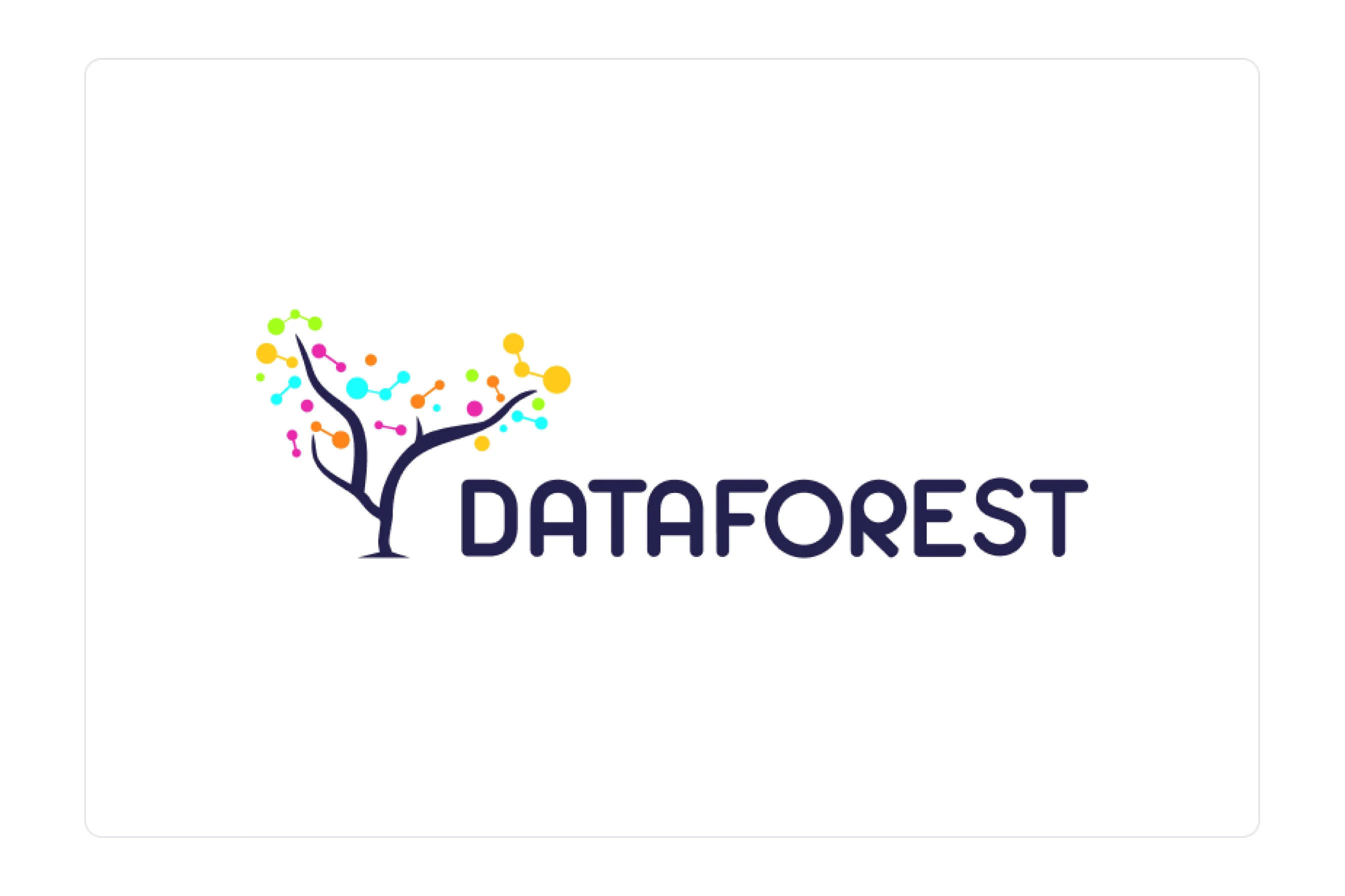
According to customer feedback, DATAFOREST solutions allowed:
- to reduce inventory residue by 19% with AI-powered customer data platform;
- to save 15 minutes per order through automated processes and streamlined workflows;
- to save 900 hours of manual work with a supply chain dashboard.
Blue Yonder
Blue Yonder offers end-to-end supply chain management solutions. It provides demand forecasting, inventory optimization, warehouse management, transportation, and reverse logistics, with deep integration of AI/ML models. The platform synchronizes data from all sources in real time, allowing for automatic decision-making in response to changes in demand, supply disruptions, or transportation delays. They work with retail, distribution, manufacturing, automotive, FMCG, and healthcare sectors.
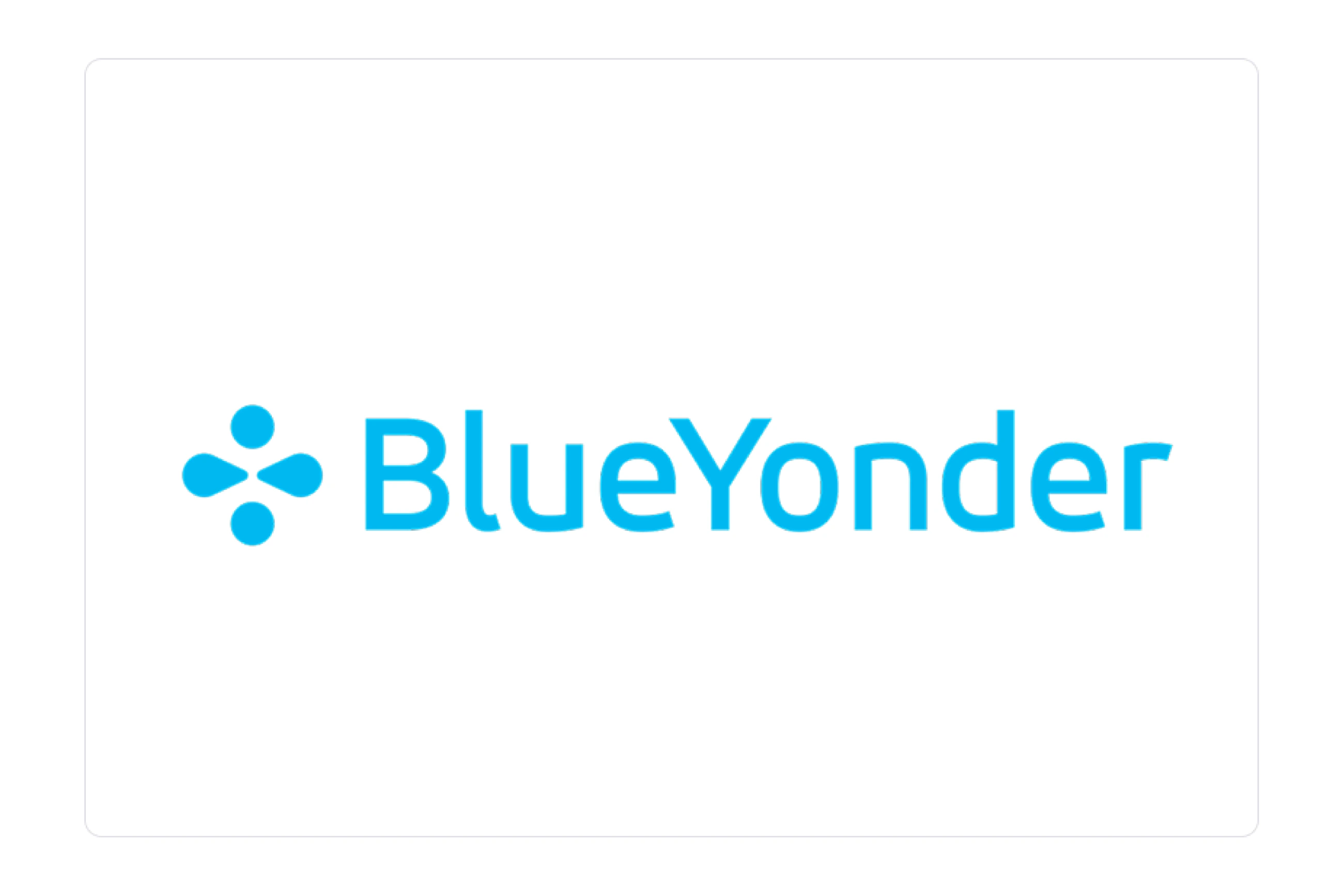
Key Results:
- One retail client increased demand forecast accuracy by 40% and reduced safety stock from 150 to 35 days after implementing Luminate Planning.
- A global electronics distributor reduced the number of shortage items by 30% and reduced the volume of unsold inventory by 25%.
Cognizant
Cognizant develops comprehensive platforms for supply chain digitalization that combine AI/ML analytics, IoT, RPA, and operations optimization solutions. The company implements control towers for real-time visibility, order automation, predictive maintenance, and AWS/Azure/GCP cloud infrastructure with CI/CD and microservices. It’s a good choice for manufacturing, logistics and transportation, retail, FMCG, and healthcare industries.
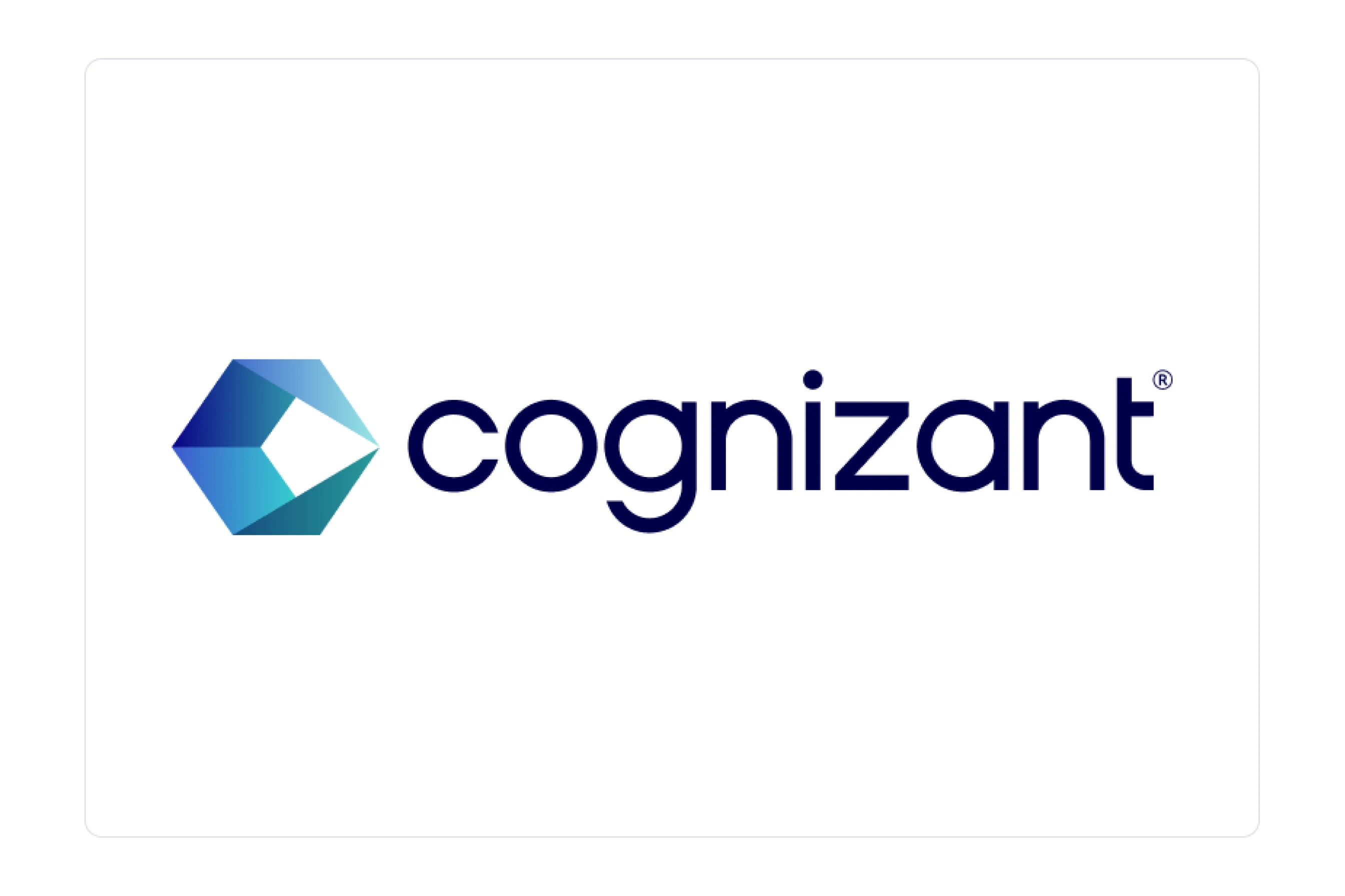
Key Results:
- CPG company reduced CI/CD setup time from 4-5 days to 30 minutes and optimized assembly by 71% through automation and containerization
- The manufacturing company achieved 4x ROI and saved $20 million by automating order processes, financial reporting, and customer service.
UiPath
UiPath is a leading platform for robotics (RPA) and intelligent automation that combines AI, OCR, process mining, and orchestration. It is used to automate routine tasks in supply chains, including order processing, inventory management, and integration between systems without APIs. Key industries are logistics, distribution, manufacturing, retail, telecom, finance, and healthcare.
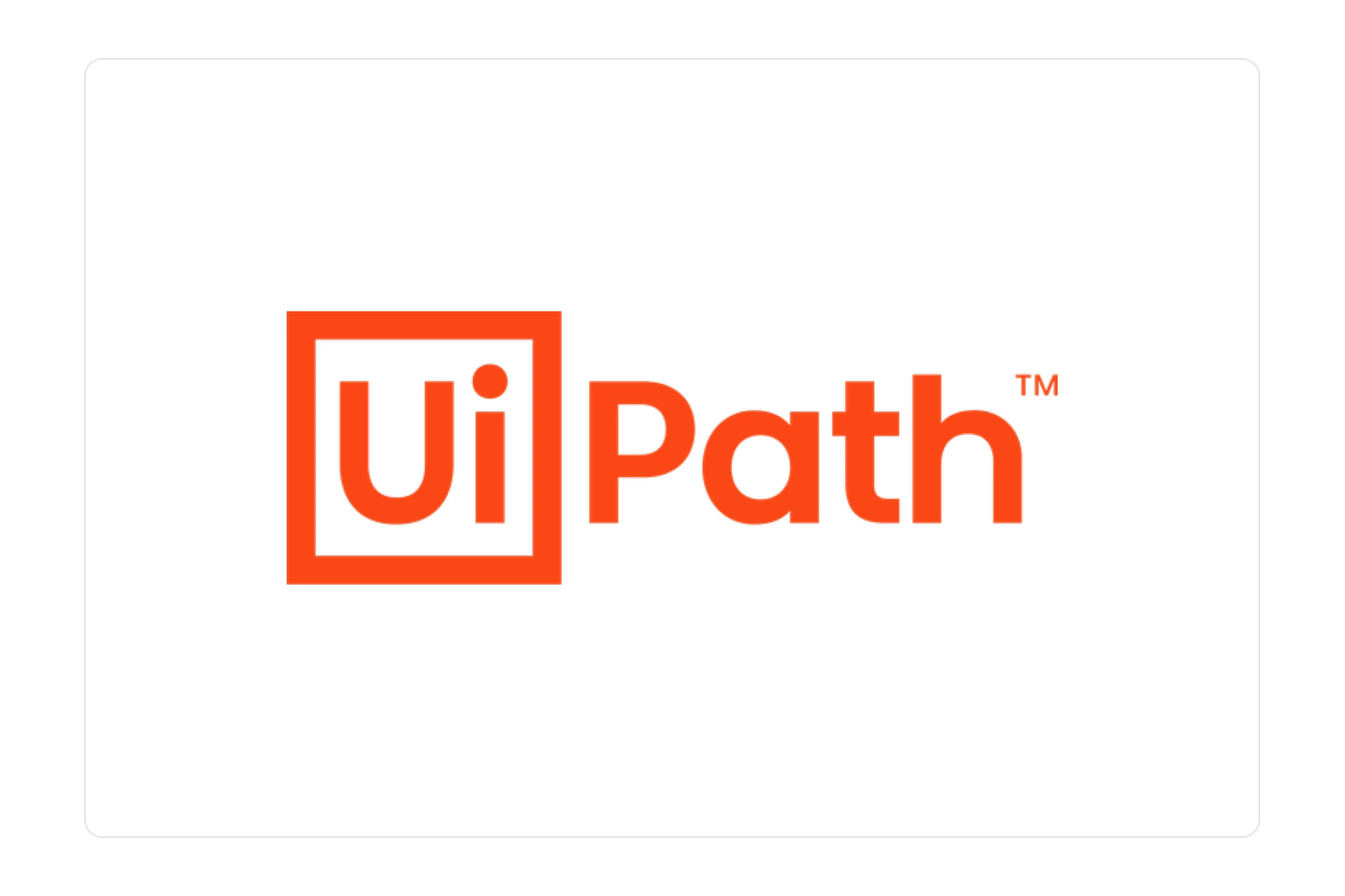
Key Results:
- A Fortune 500 electronics distributor implemented UiPath robots with eInfochips—error rate dropped by 90%, productivity increased by 35%, saving $96,000 annually.
Basware
Basware specializes in automating procurement and invoice processing (P2P). The platform combines AI-driven scanning, data extraction, e-invoicing, analytics and ERP integration. The product covers the entire invoice cycle–from receipt (paper or digital) to full reporting and expense management. They provide services for finance, manufacturing, pharmaceuticals, retail, healthcare, and logistics.
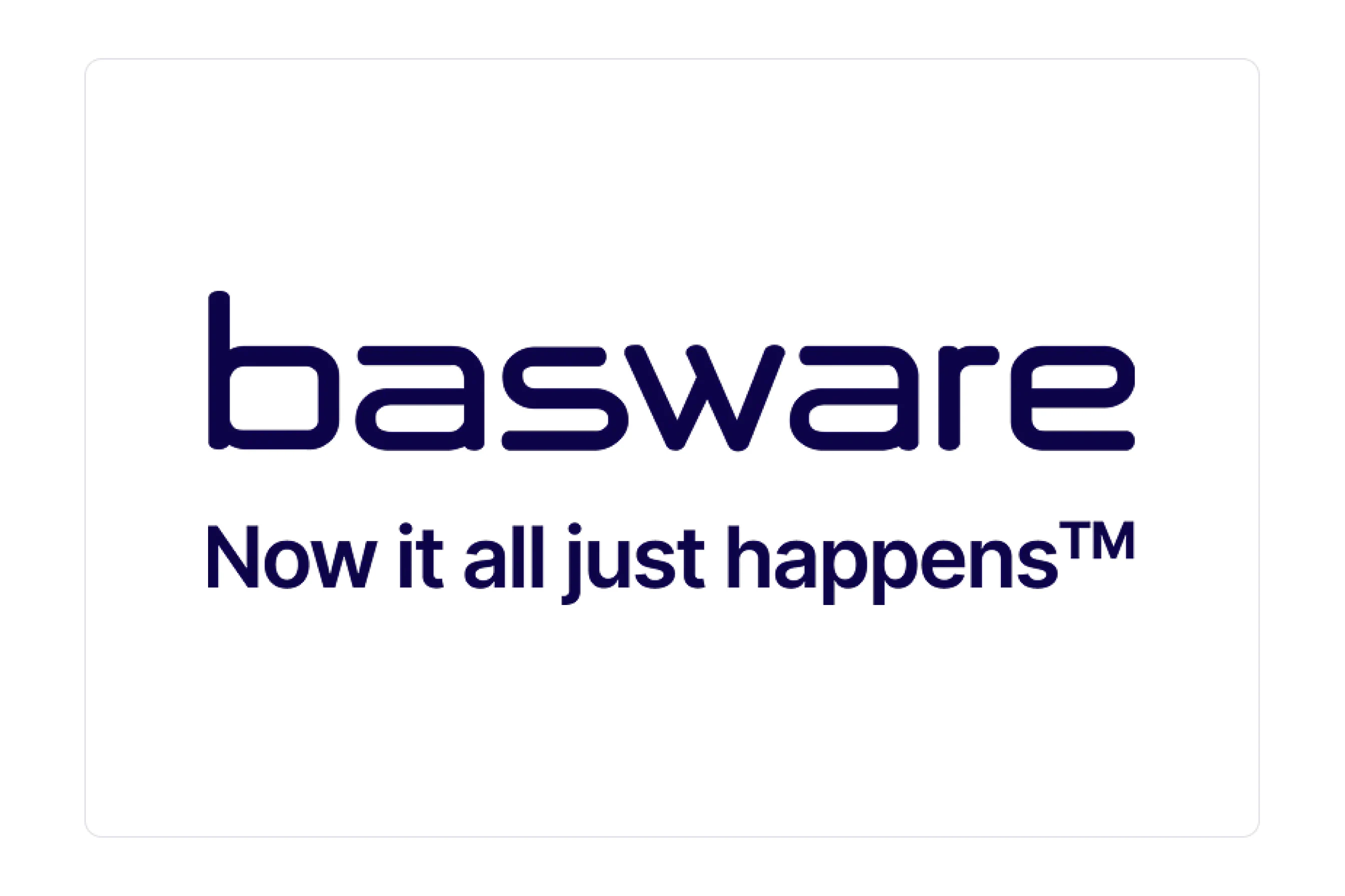
Key Results:
- Loomis Sayles reduced invoice processing time by 38%, 85% of invoices are paid within 10 days and AP team productivity increased by 40%.
- KION achieved 50% reduction in processing cycle, 42% touchless processing, over 90% cost control and 58% e-invoicing.
Dataiku
Dataiku is a platform for building scalable analytics and managing AI/ML processes in supply chains. It allows users to integrate data from different sources, create auto-modeling models (AutoML), implement them through MLOps, and create interfaces for operational use of analytical insights. Key industries are logistics, manufacturing, warehousing, energy, retail.
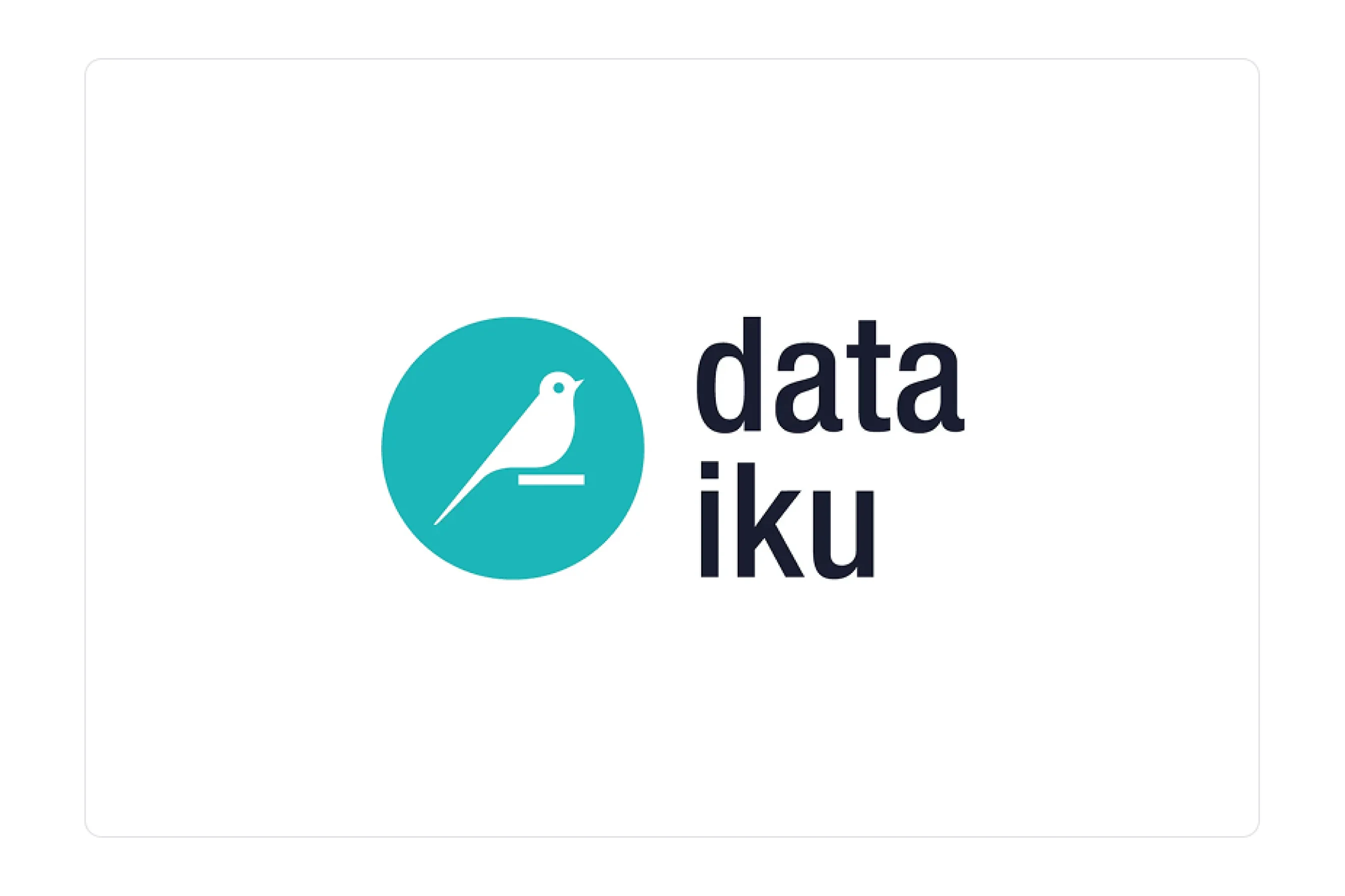
Key Results:
- Shippeo increased the accuracy of ETA forecasts by 32% by using Dataiku for MLOps and processing IoT data.
- Renault launched over 25 AI projects in the supply chain with Dataiku, potentially generating up to €45 million in digital value, with €10 million invested in the first solutions.
Kinaxis
Kinaxis offers the RapidResponse cloud platform with concurrent planning, which provides full supply chain visibility, rapid scenario modeling, automatic response to changes and AI tools. They provide solutions for high-tech manufacturing, electronics, CPG, healthcare, energy and other industries with extensive global supply chains.
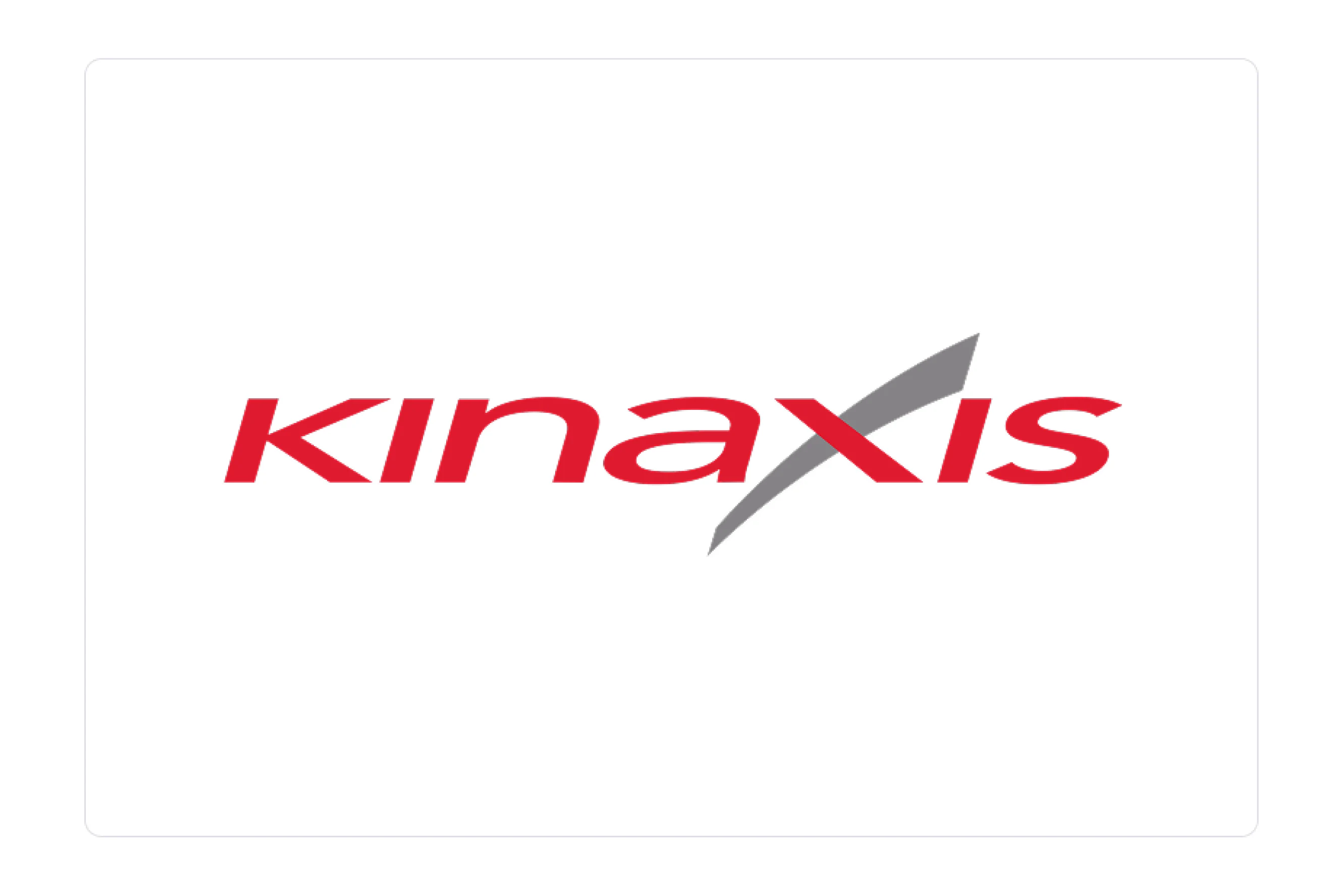
Key Results:
- One project increased its on-time delivery (OTIF) rate from 86% to 94%, while reducing revenue delinquency from $42 million to $10 million and increased employee engagement by 57%.
Coupa
Coupa offers an AI-powered total spend management platform with deep support for procurement, invoicing, contracts, shipping, and supply chain risk management. The platform is actively implementing digital twins, route optimization, and prescriptive AI, enabling companies to make sourcing decisions, model scenarios, and manage costs in real time. Key industries are retail, manufacturing, logistics, healthcare, and technology.
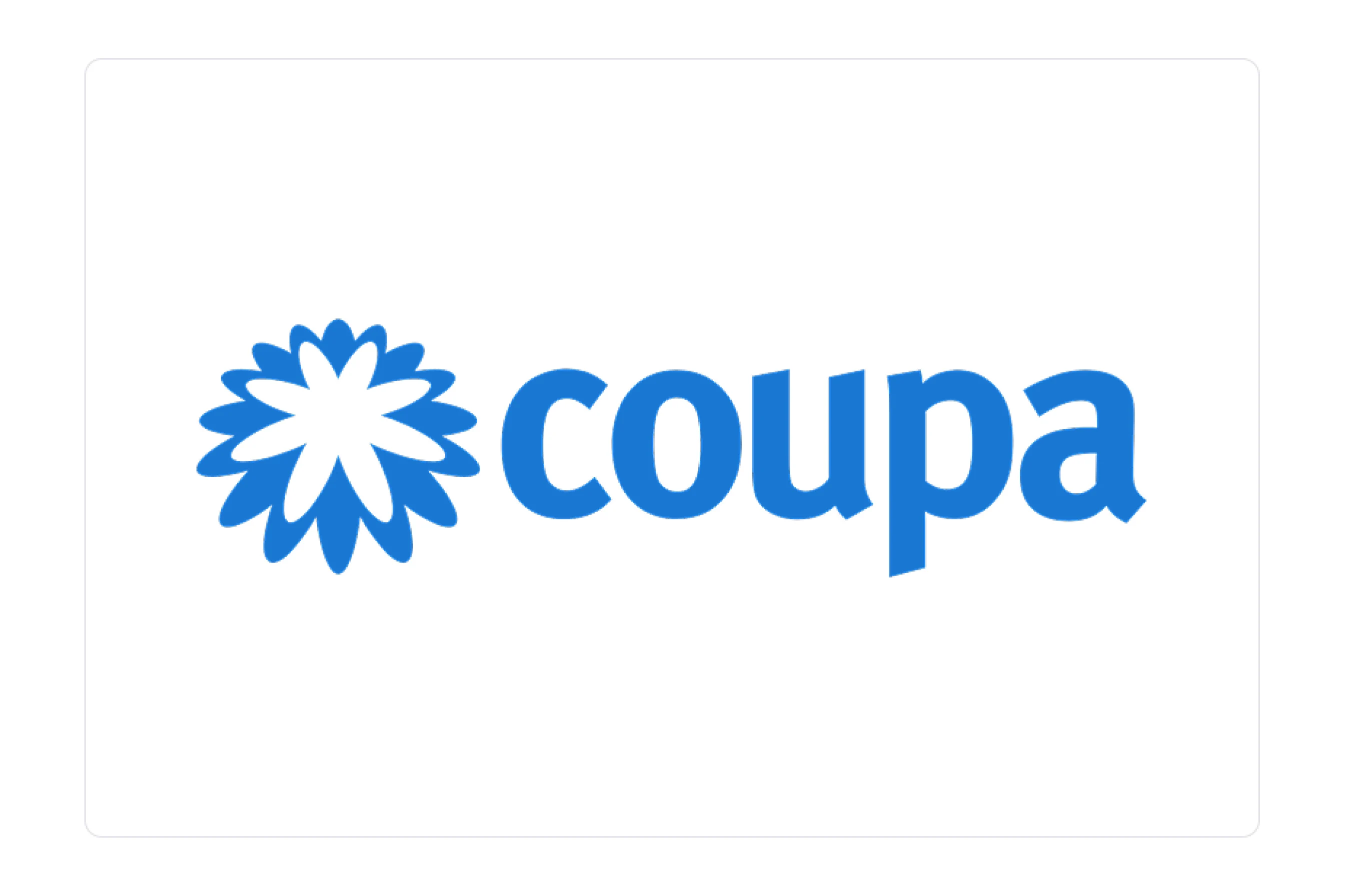
Key Results:
- 276% ROI over three years: their customers achieved $90M in benefits on $24M investment, payback in less than 10 months.
- 10-25% logistics cost reduction thanks to digital logistics strategy and AI recommendations on routes and modes of transportation.
Infor SCM / Infor Nexus
Infor Nexus is a cloud-based global supply chain management platform that connects suppliers, manufacturers, 3PL partners, and financial institutions into a single ecosystem. It provides complete visibility, event prediction, and process automation across a single network, enabling companies to respond quickly to changes and optimize costs.
Their services are popular among manufacturing, retail, pharmaceuticals, consumer goods, agribusiness, logistics and energy sectors.
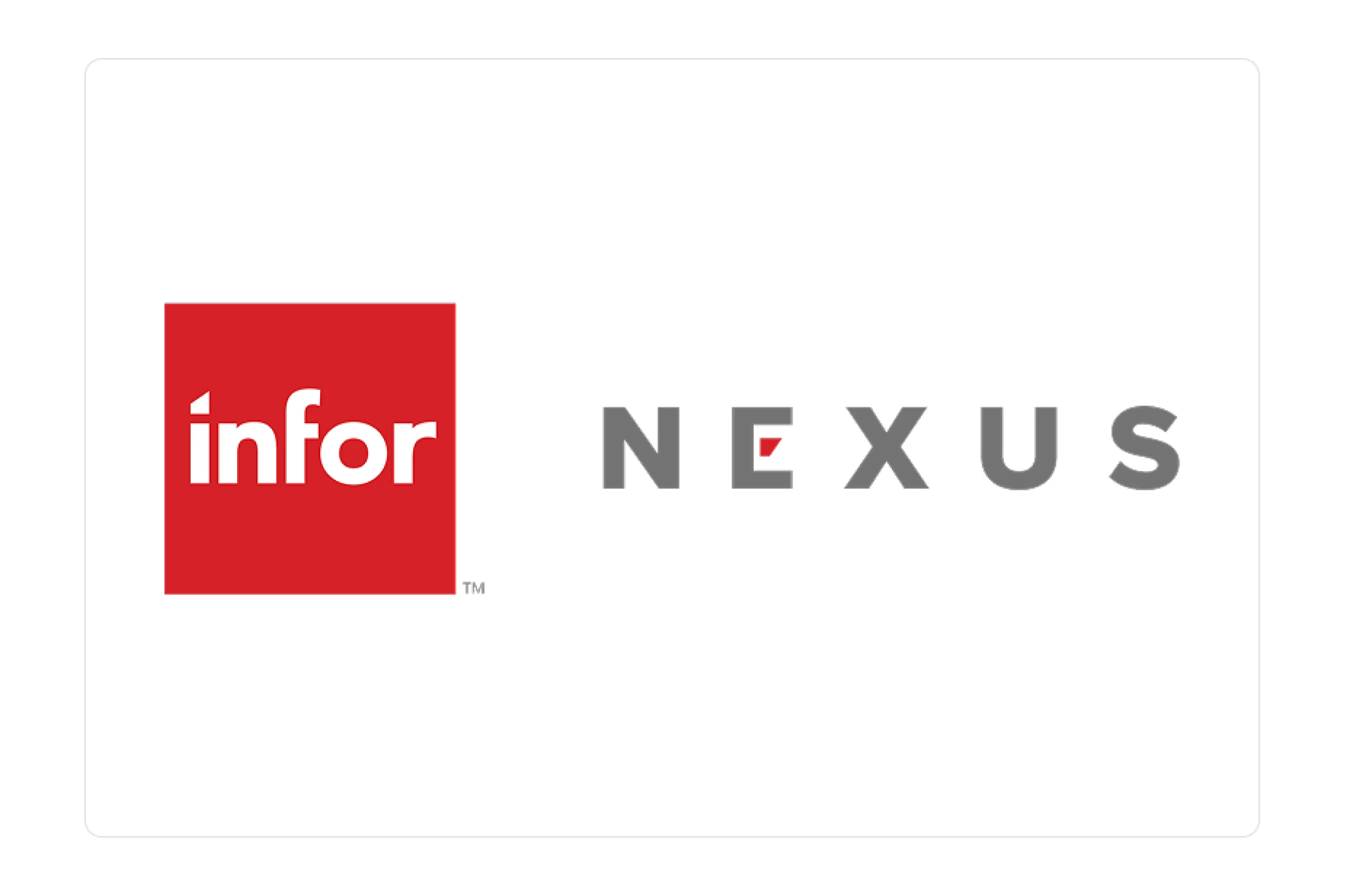
Key Results:
- A top agriculture science company established a 4PL strategy to leverage logistics expertise to realize a 13% reduction in freight spend.
- A multi-billion-dollar industrial manufacturer removed 3 days of inventory and saved $300M through better control of inbound and outbound supply chain flows.
FourKites
FourKites is a real-time supply chain visibility platform that uses artificial intelligence to automate management processes. Its core innovation is AI-powered digital workers that monitor global supply networks and optimize it. They automatically interact with carriers, update customers on the status of shipments, generate reports, and predict potential disruptions, allowing companies to react before issues impact operations. It’s a perfect fit for retail, consumer goods, pharmaceuticals, food, logistics and healthcare industry.
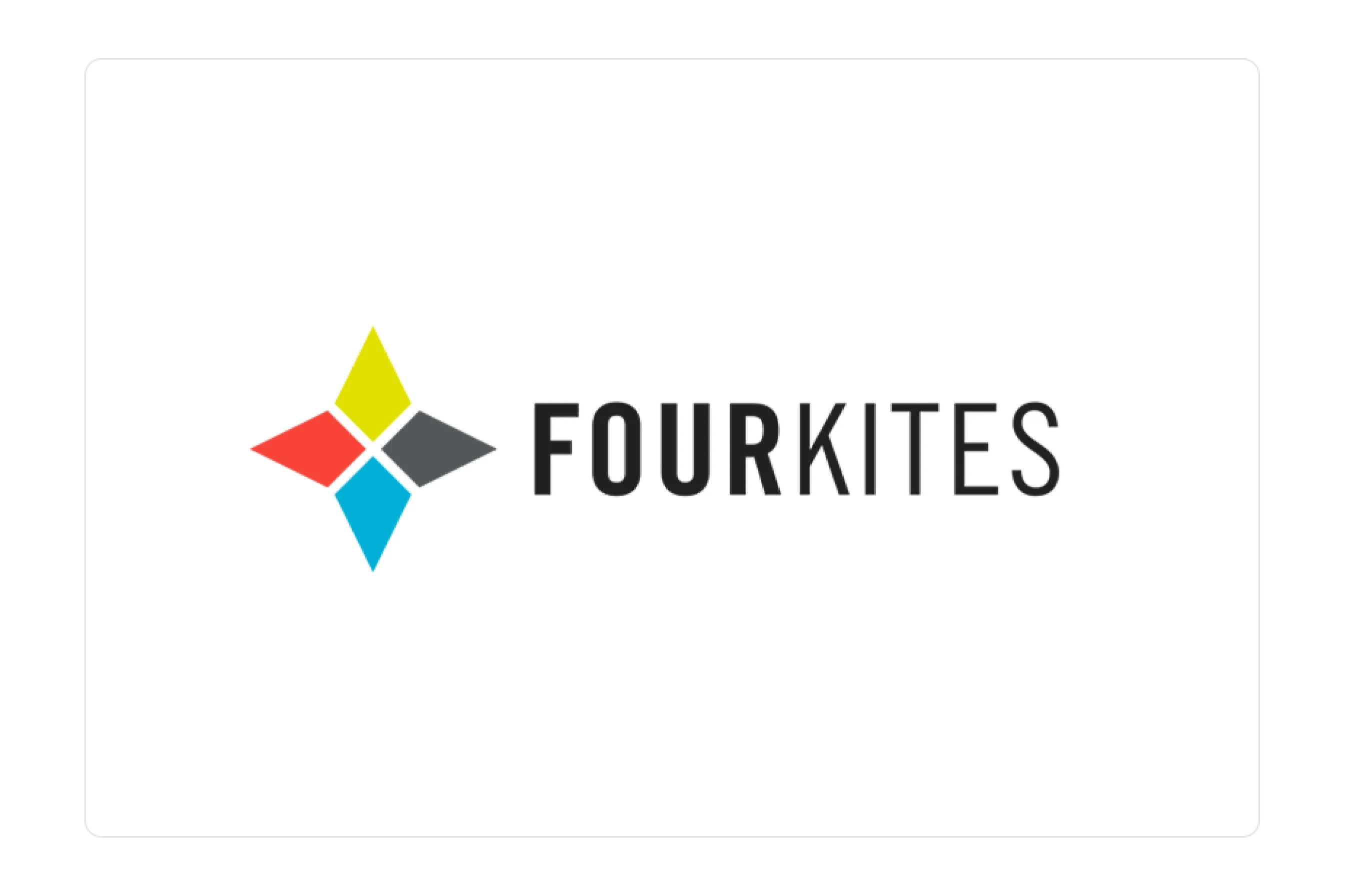
Key Results:
- Companies using FourKites solutions have seen a 50-75% reduction in freight delay costs, a 15-25% reduction in expedited delivery costs, and a 20-30% reduction in late-on-time delivery (OTIF) penalties.
- Customers experience efficiency gains of up to 75%, and time spent on manual communication with partners was reduced by 95%.
GEP
GEP is a cloud-based supply chain and procurement management platform that offers tools for planning, cost analysis, procurement automation, and risk management. The system maintains transparency across all operations, allows you to optimize costs and quickly respond to market changes. They also integrate AI in the supply chain for forecasting, analytics, and automated decision-making. They work with manufacturing, pharmaceuticals, energy, consumer goods and logistics.
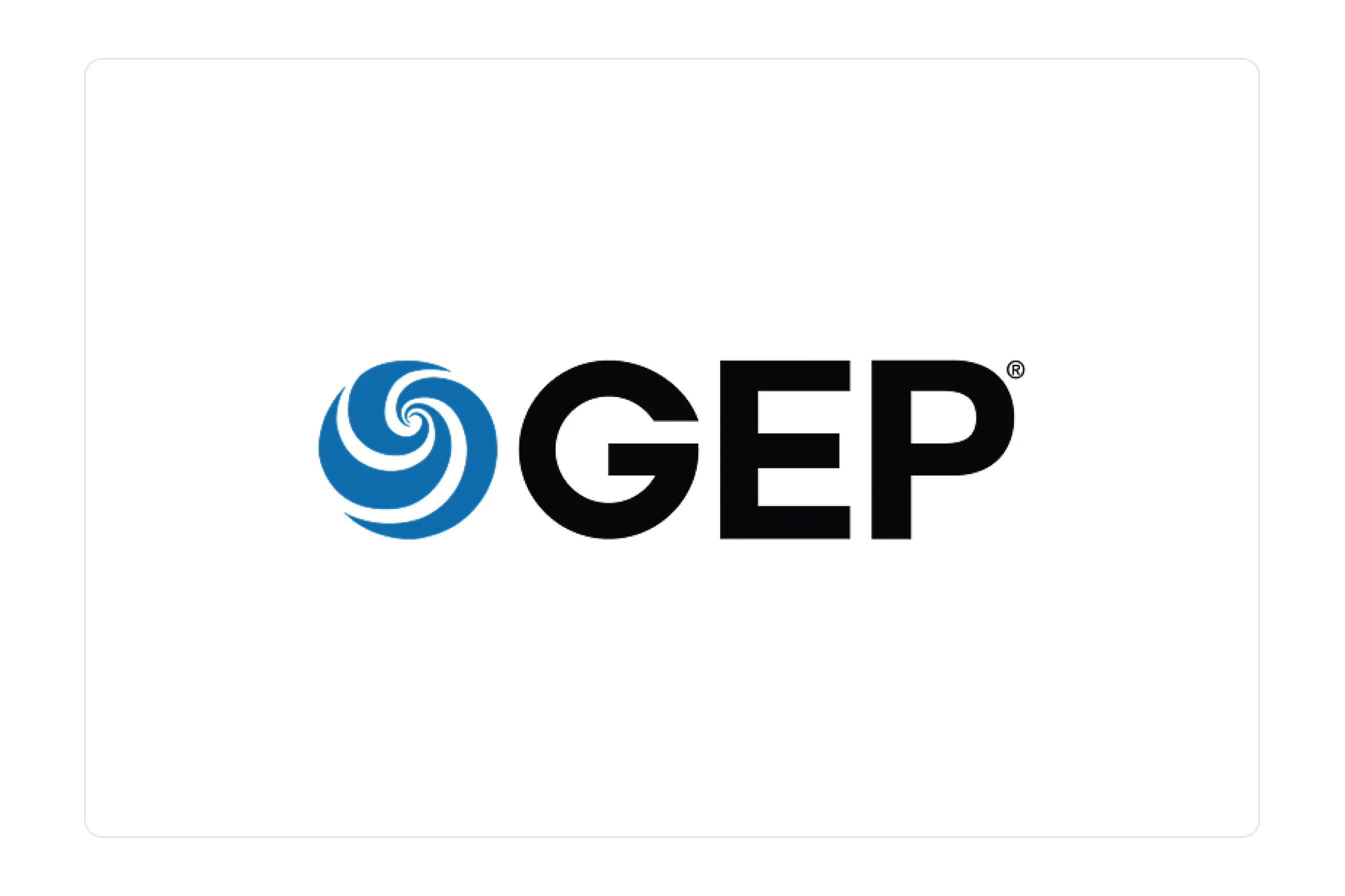
Key Results:
- Reducing operating costs by 15% due to deeper analysis and better procurement management.
- Cutting contract execution time by 40%, which accelerated the launch of new products to the market.
Logility
Logility is a supply chain planning and optimization platform that helps companies better forecast demand, better manage inventory, and respond to market changes faster. It combines data from various sources and uses analytics to provide transparency and control at every stage of the supply chain.
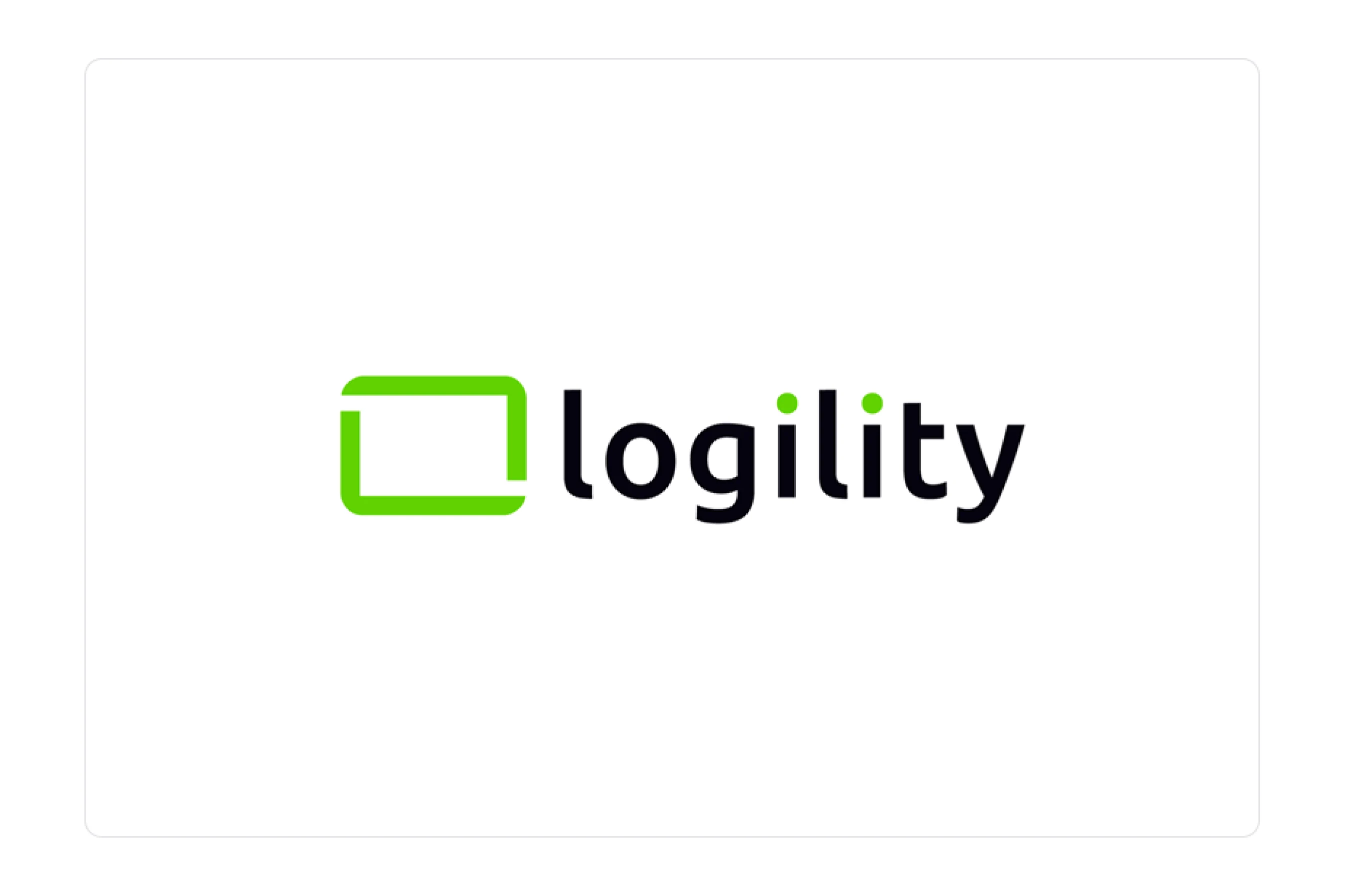
Key Results:
- One retailer increased the accuracy of demand forecasts by 20%.
- A consumer goods manufacturer reduced the time it took to plan deliveries by 30%.
TraceLink
TraceLink is a digital supply chain orchestration platform that enables enterprise-wide integration and improves visibility and collaboration in real time. It enables companies to share critical business information with suppliers, customers, and partners, ensuring 100% interoperability and reducing integration costs. The platform supports EPCIS standards and meets regulations such as DSCSA. They provide solutions tailored to the needs of the healthcare and life sciences industry.
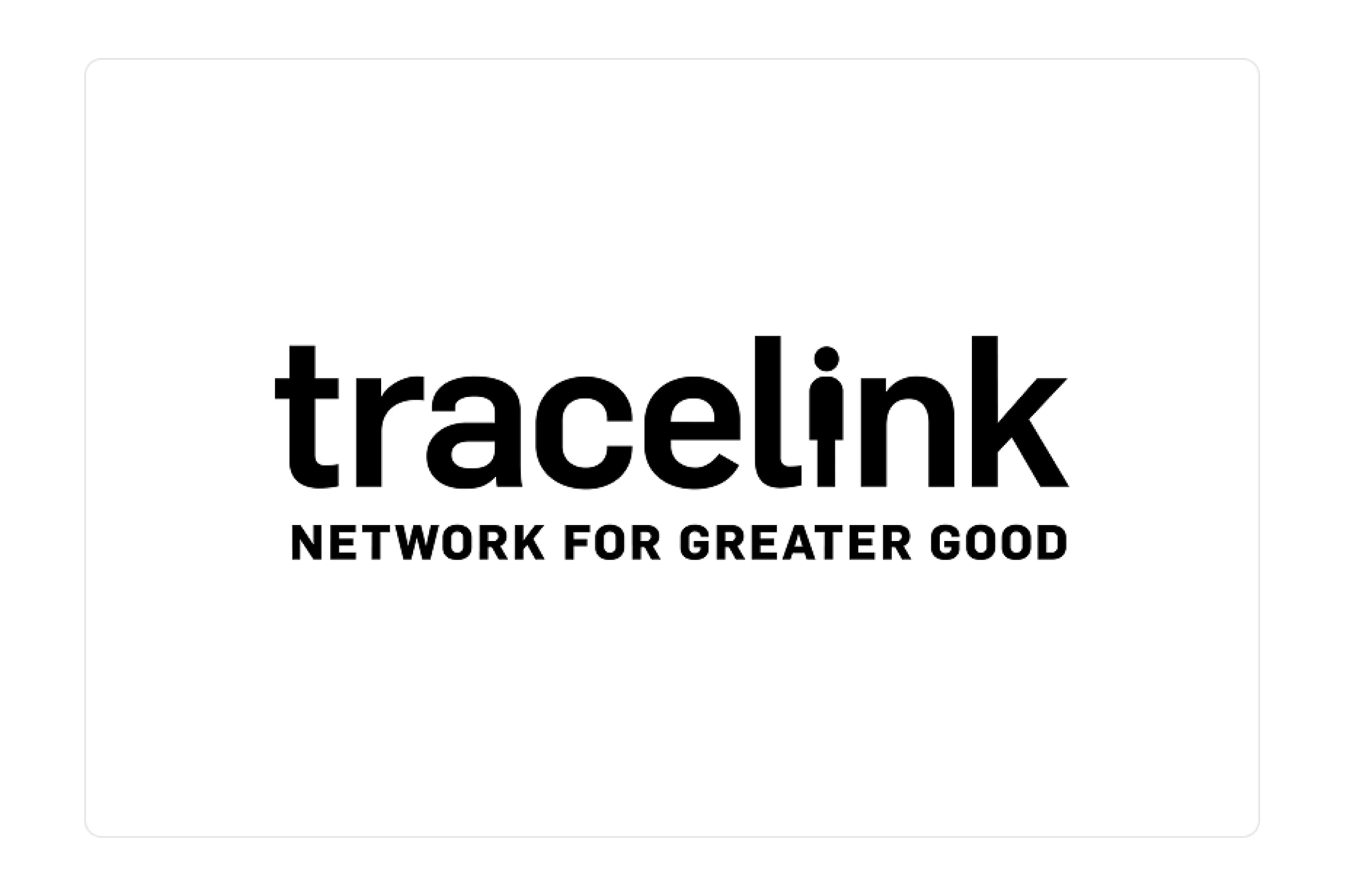
Key results:
- A leading U.S.-based healthcare system with over $500 million in annual pharmacy spend has selected TraceLink’s MINT platform to fully digitalize its procure-to-pay operations and unlock millions in direct spend savings.
Resilinc
Resilinc is a platform for monitoring, mapping and improving supply chain resilience. It provides multi-tier visibility (down to the sub-tier level), automatic risk detection and agent-based AI for rapid responses. They provide solutions for aerospace and defense, healthcare and life sciences, automotive and industrial, high tech and semiconductor sectors.
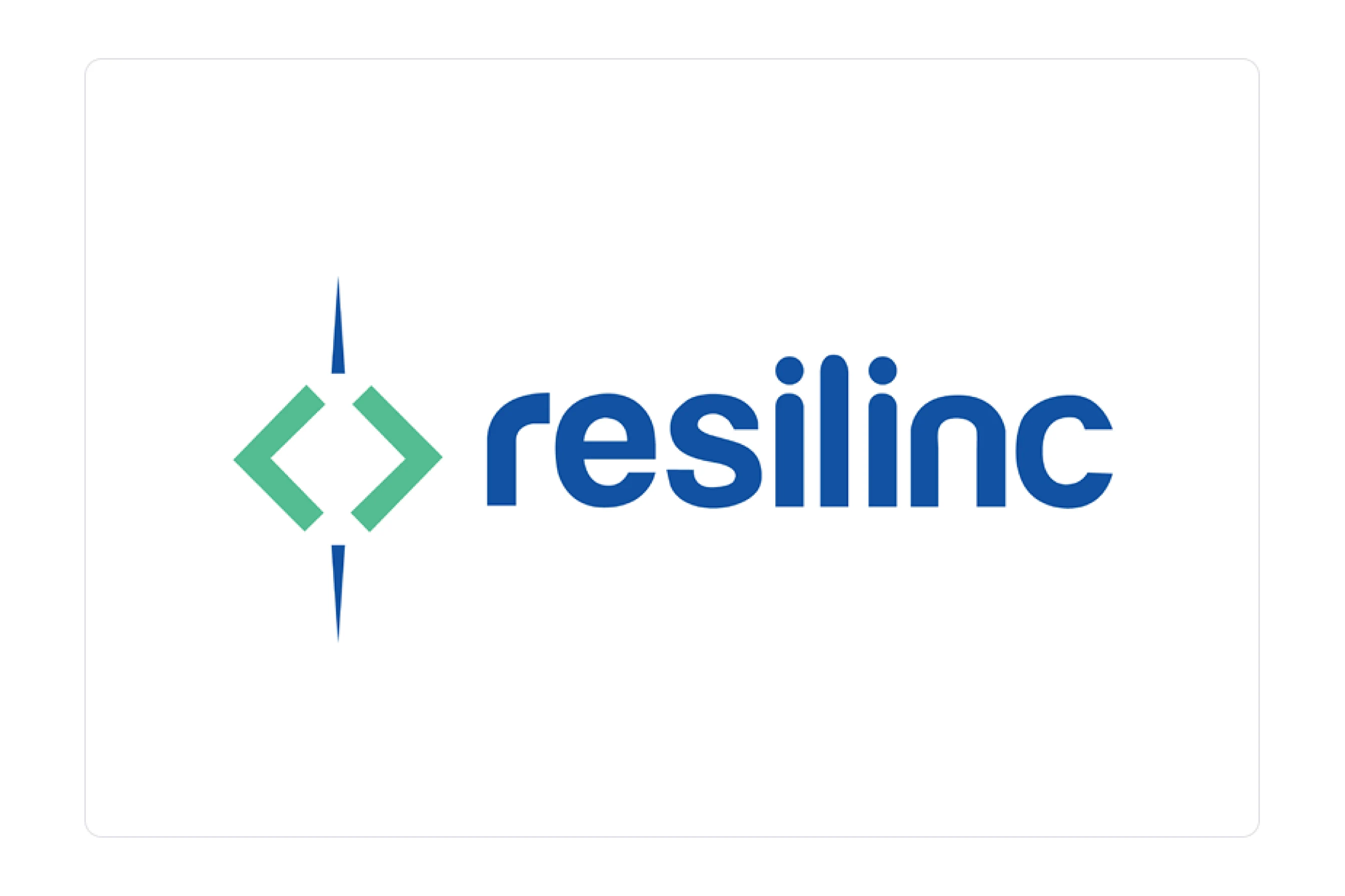
Key results:
- Woodward Saves $950K in 6 Months with Resilinc’s supply chain risk management software.
Syncron
Syncron is a SaaS platform designed for aftermarket service––inventory management and pricing of parts, service and warranties. The system combines AI/ML analytics, dynamic planning and agents that automatically monitor inventory levels and optimize replenishment. It’s a good fit for automotive, industrial and construction equipment, agriculture, aviation, home appliances and high technology industries.
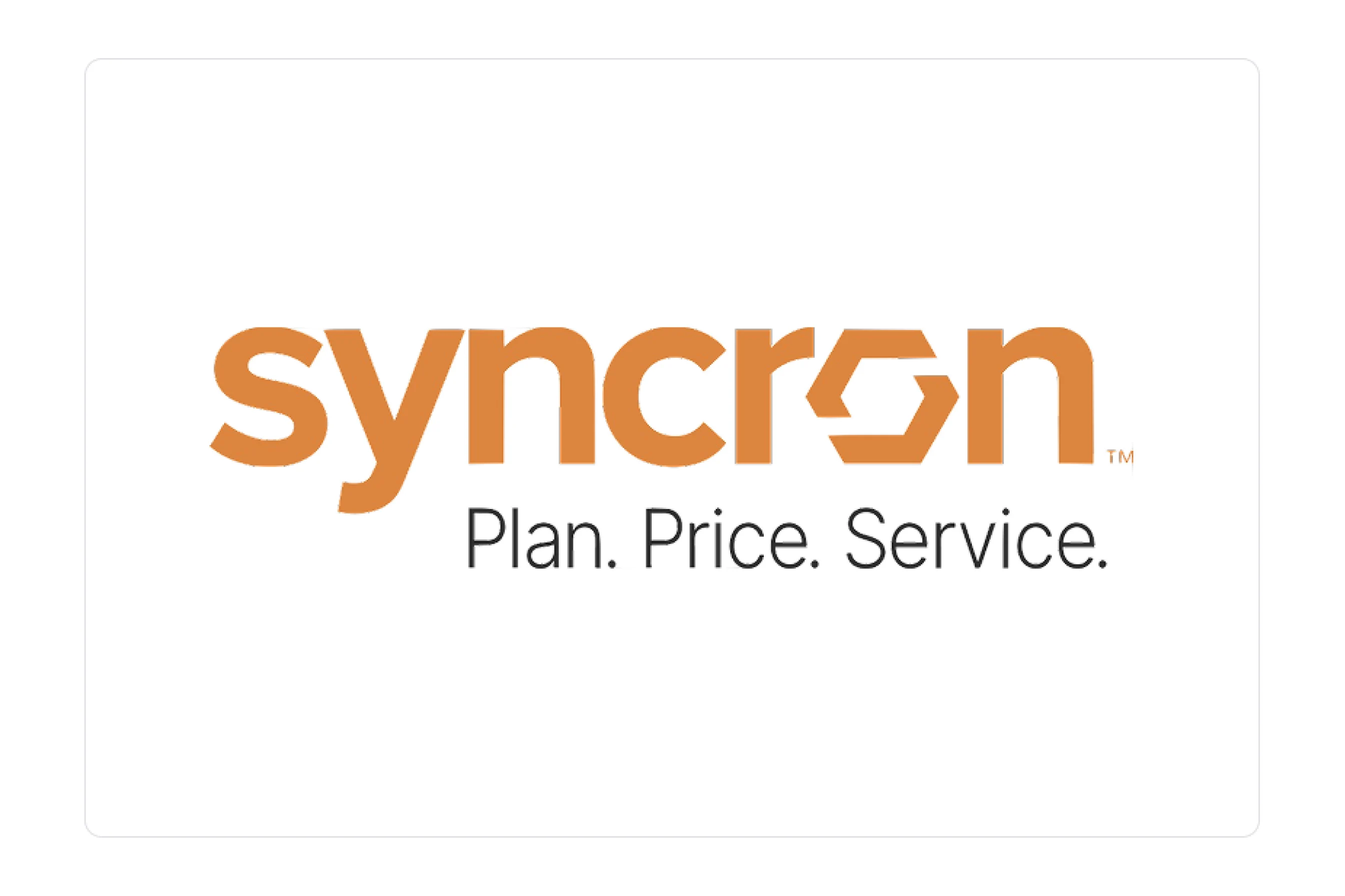
Key Results:
- Al Masaood Automobiles (UAE): implemented Syncron Inventory™, which reduced inventory levels nationwide by 15%, in branches by 20%, shortened the turnover period from 61 to 46 days and reduced manual order editing by 20-30%.
- Hitachi Construction Machinery expects $20 million in profit in the next 5 years. They reduced price adjustment efforts by 30% and accelerated the revision of new prices from 5 to 3 months.
DENSO
DENSO is implementing digital technologies in warehouses and production lines, using autonomous robotics, RFID scanners, IoT devices and RTLS (Real Time Location System). This allows users to create a digital twin of the warehouse and receive real-time data to prevent errors and downtime. Their solutions are tailored for automotive and logistics businesses.
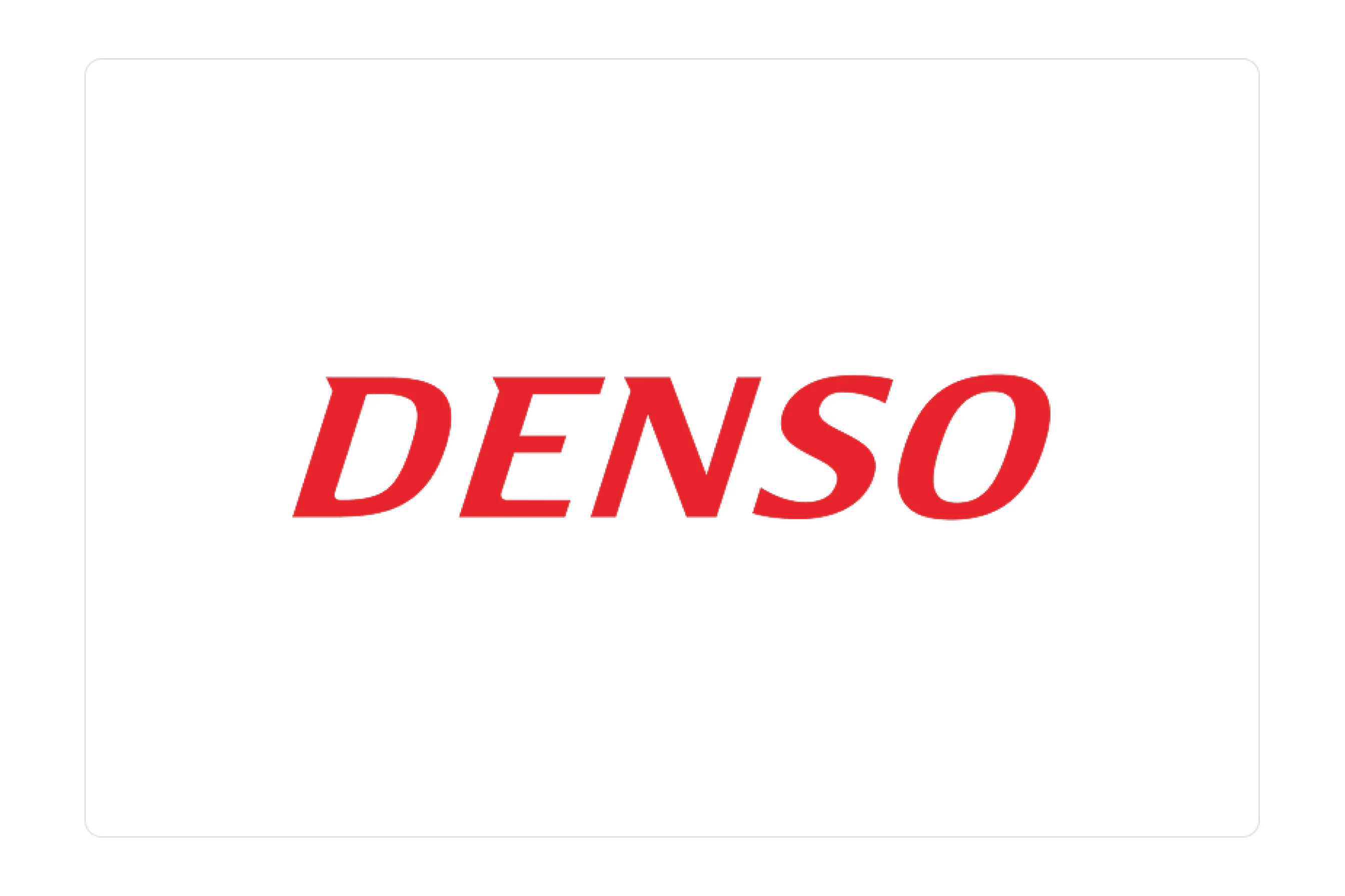
Key Results:
- By scanning racks with autonomous robots, DENSO achieved 99% inventory accuracy, eliminated the threat of production downtime and achieved zero assembly errors in the first week.
- The RTLS system in a warehouse in the USA (Maryville, TN) reduced access platform traffic by 22%.
Epicor
Epicor offers solutions for digitalization of the supply chain that integrate AI, IoT and the Kinetic SCM ERP system. The platform brings together demand forecasting, inventory management, smart logistics and analytics––all in a single environment, allowing teams to quickly control processes and respond to changes. They work with manufacturing, distribution, retail, industrial equipment, automotive companies with a focus on mid-sized and large businesses.
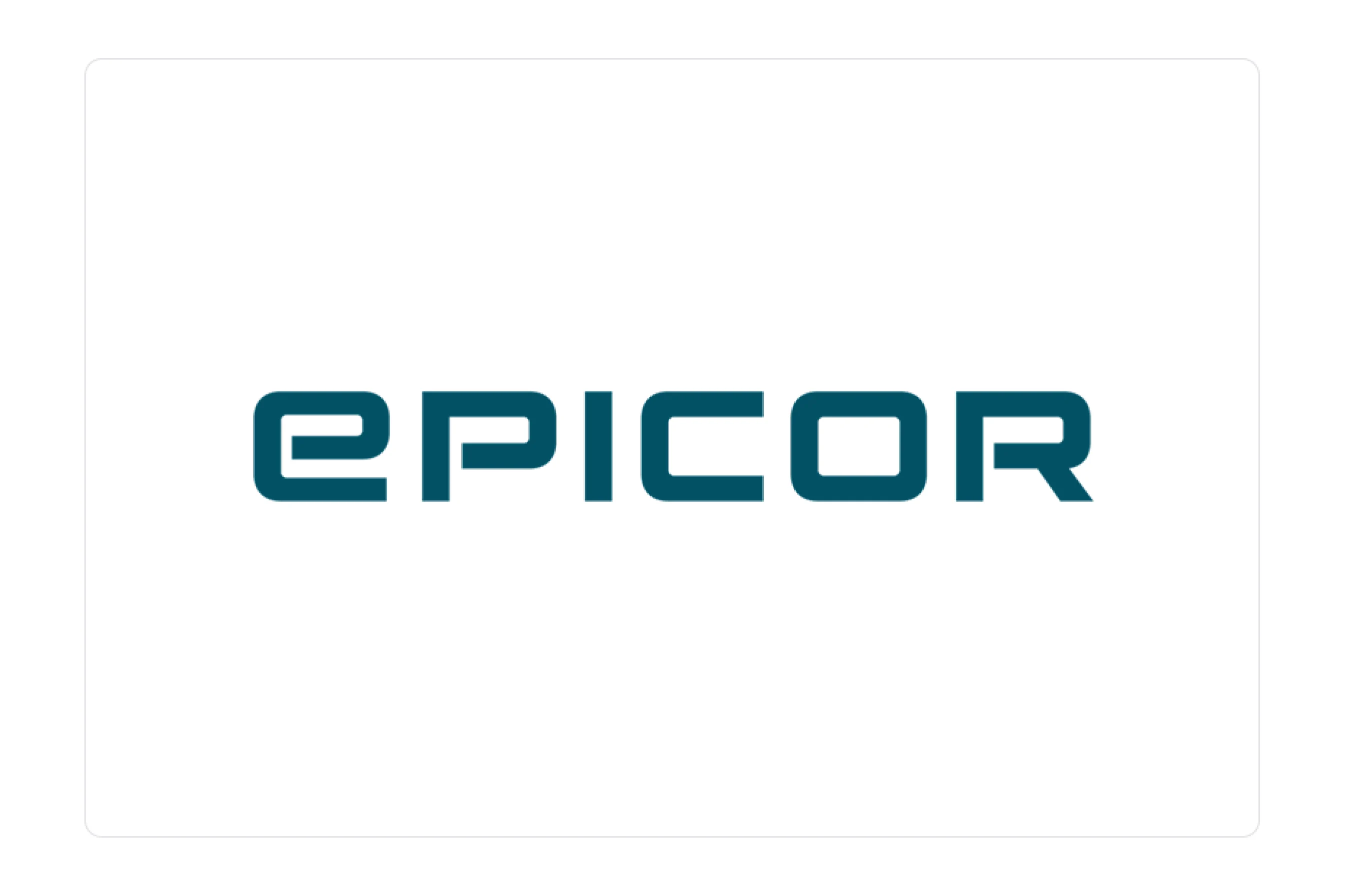
Key Results:
- Epicor’s AI assistant reduces standard tasks that used to take days to minutes.
Kinaxis RapidResponse
Kinaxis RapidResponse’s key advantage is the concurrent planning concept, which allows the team to analyze the entire system in a single flow: demand, supply, production and inventory. This cloud-based solution replaces fragmented ERP/planning systems and provides a dashboard for scenario simulation and instant adjustments. Perfect for high-tech manufacturing, electronics, pharmaceuticals, transportation, automotive, CPG.
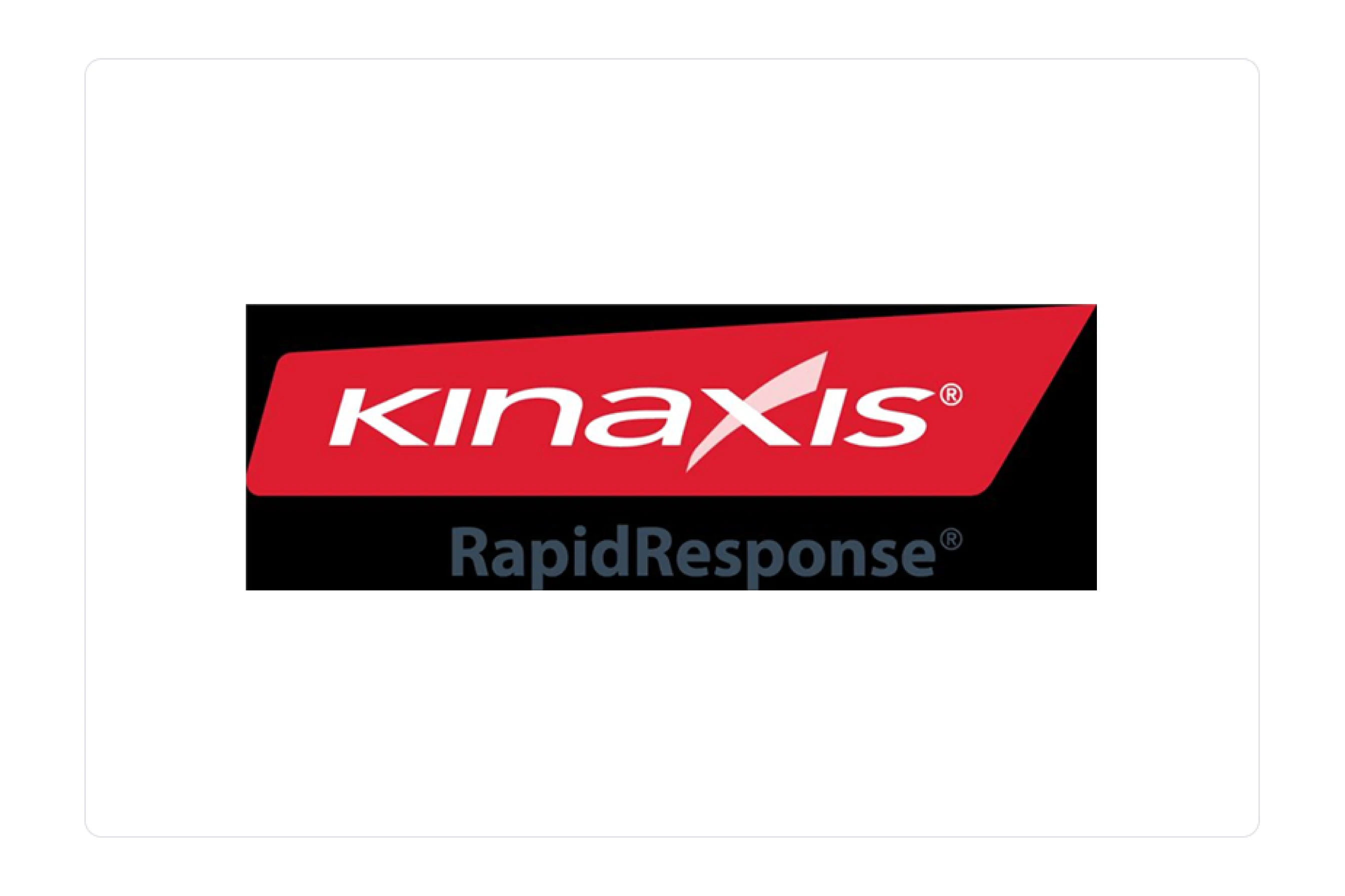
Key Results:
- Celestica reduced the time to assess readiness for production from 2 days to 1 hour. Daily savings—about 35 hours.
E2open
E2open is a cloud-based connected supply chain platform that unites over 480,000 manufacturing, logistics, and distribution partners into a single e2net network. The system supports demand planning, inventory management, transportation, global trade, customs control and risk assessment, providing real-time visibility and synchronization almost in real-time.
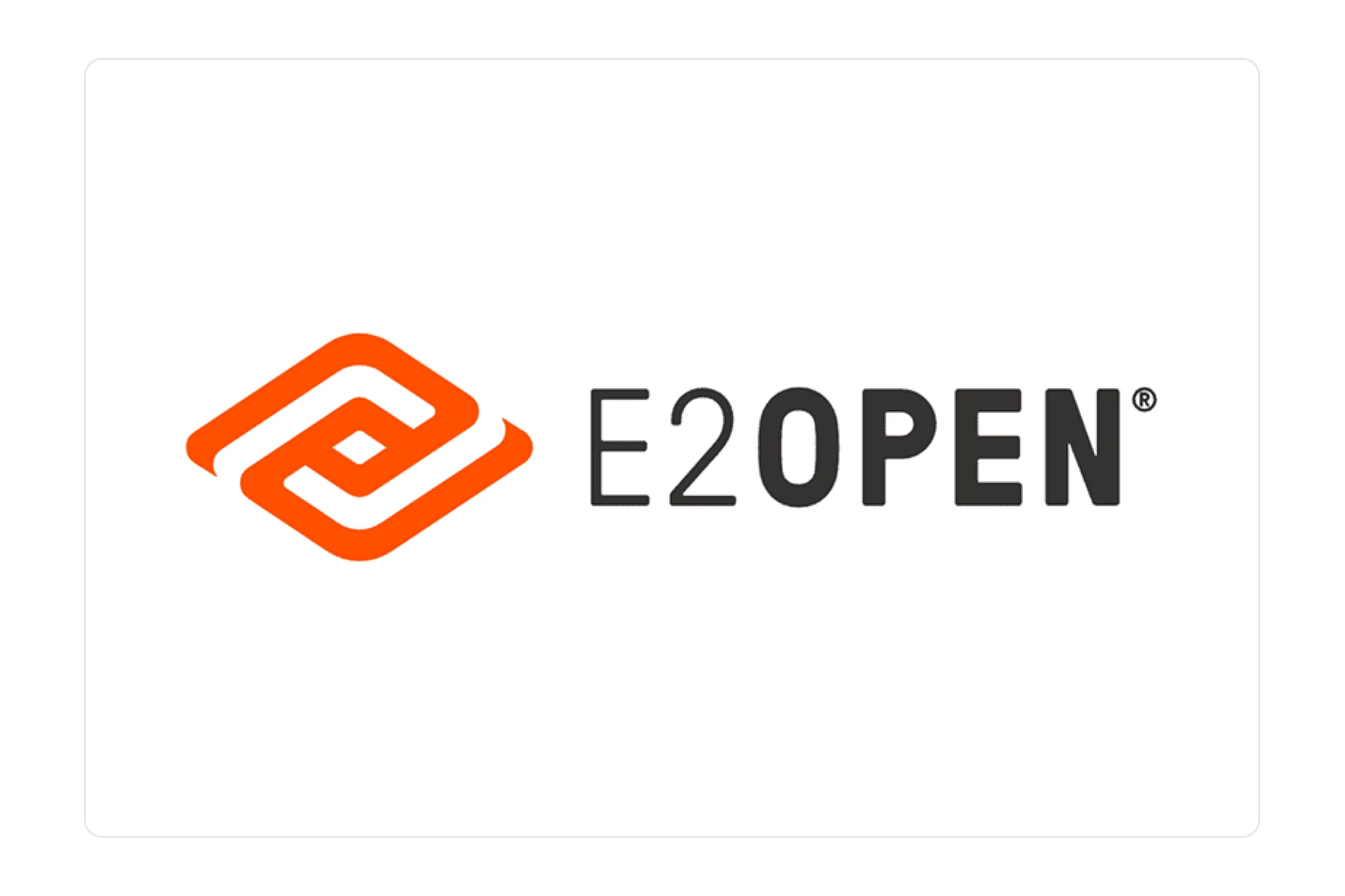
Key Results:
- E2open reduces operating costs by 5-35%, improves service by 17% and increases employee productivity by 15% for manufacturing companies.
- Seagate reduced the number of logistics operators from 30 to 2, reduced the delay time from three days to 24 hours.
HighJump SCM
HighJump (now part of Körber Supply Chain) offers a flexible cloud-based supply chain management platform focused on both WMS (warehouse management) and WCS (device control), voice interfaces and scenario simulation. Key industries include retail, logistics, and manufacturing.
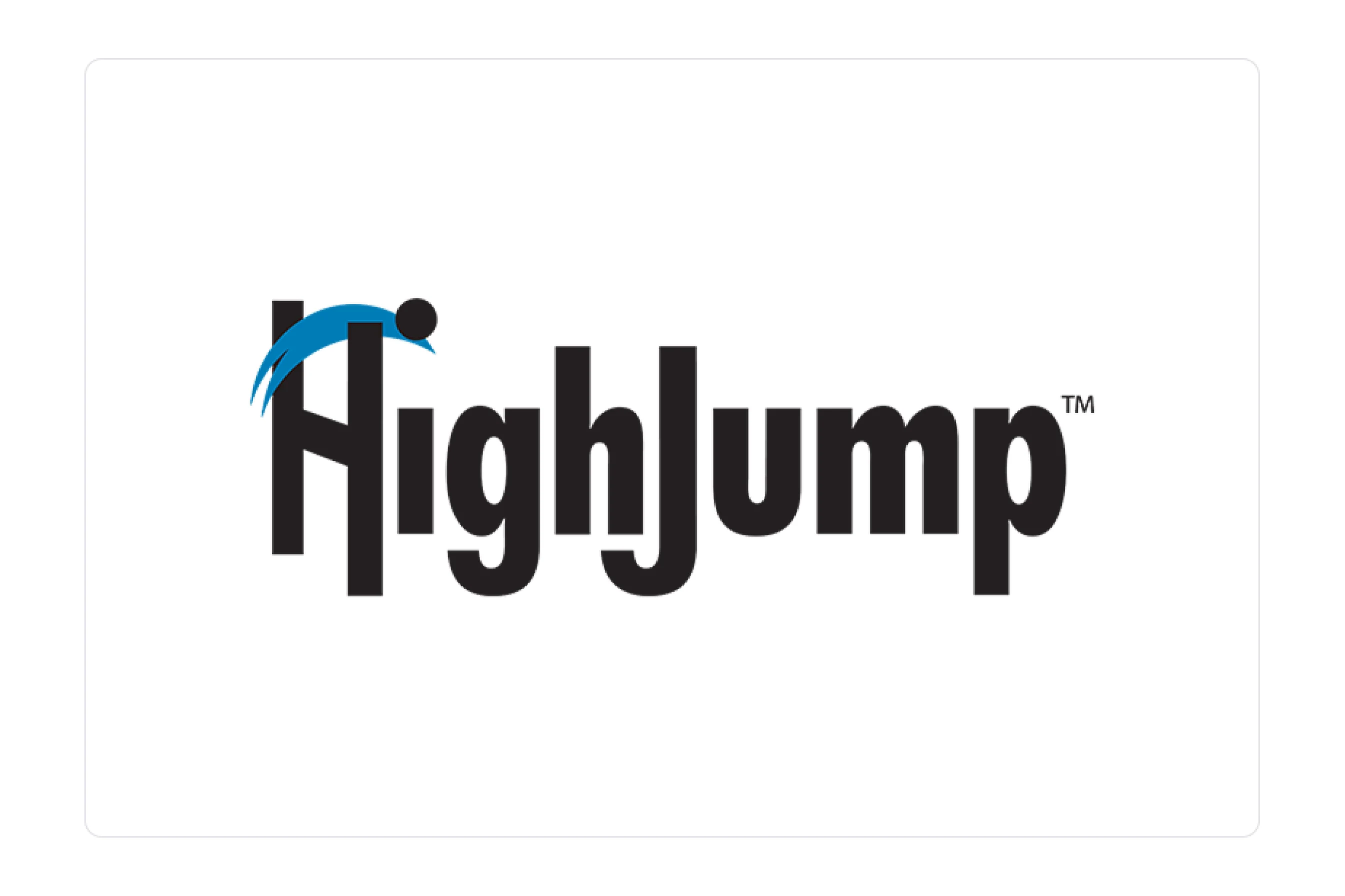
Key Results:
- Smart slotting tool reduces exceptions at receiving by 80%.
- Voice interface reduced average order picking time from 12 to 4 hours.
- Warehousing accuracy—over 99%.
Ready to Digitalize Your Supply Chain?
Top 20 companies, including DATAFOREST, are proving that intelligent demand forecasting systems, predictive analytics for logistics, real-time analytics, and other supply chain solutions can not only reduce costs but also radically change the pace of business growth.
DATAFOREST combines artificial intelligence, big data, and data engineering. If you want to see how you can automate and optimize your supply chain for operational efficiency, book a call now.
Get a Free Consultation
Every supply chain is unique. Some have chaotic Excel reports, some have fragmented systems with unrelated data, some have suppliers in different time zones and zero visibility. DATAFOREST specializes in building custom solutions for supply chains, which are based on:
- unification of disparate data sources (ERP, CRM, Excel, API, IoT);
- building a data architecture taking into account the specifics of the business;
- implementing AI/ML models for demand forecasting, inventory optimization and scenario planning;
- creating interactive dashboards and automatic alerts.
During a free consultation, we will:
- analyze your current approach to supply chain data;
- identify key challenges and blind spots;
- discuss potential solutions.
Contact us if you are interested.
Final Thoughts
Supply chain digitalization is now an operational necessity. The companies on this list have not just implemented technology––they have changed the logic of management: from reactive to predictive, from isolated processes to integrated, transparent and flexible systems. Whether it is a global platform like E2open, or custom solutions like DATAFOREST, Syncron or Kinaxis––they all prove that the modern supply chain starts with data.
FAQ
Which technologies are driving supply chain digital transformation in 2025?
AI/ML, IoT, robotics, cloud platforms, blockchain, digital twins, big data analytics and process automation.
What are the key benefits of implementing a cloud-based supply chain solution?
Flexibility, scalability, fast access to real-time data, improved collaboration between partners, reduced IT infrastructure costs and easier innovation.
Which industries benefit the most from supply chain digitalization?
Manufacturing, pharmaceuticals, retail, automotive, logistics, high technology and consumer goods.
What are digital twins in the supply chain and how are they used?
Digital twins are virtual copies of physical supply chains that replicate processes in real time to simulate scenarios, optimize operations, and respond quickly to changes.
What’s the difference between supply chain automation and digitalization?
Automation is the mechanization of routine operations (e.g., robotic sorting), and digitalization is a comprehensive transition to digital platforms and analytics that encompasses planning, communication, and decision-making.



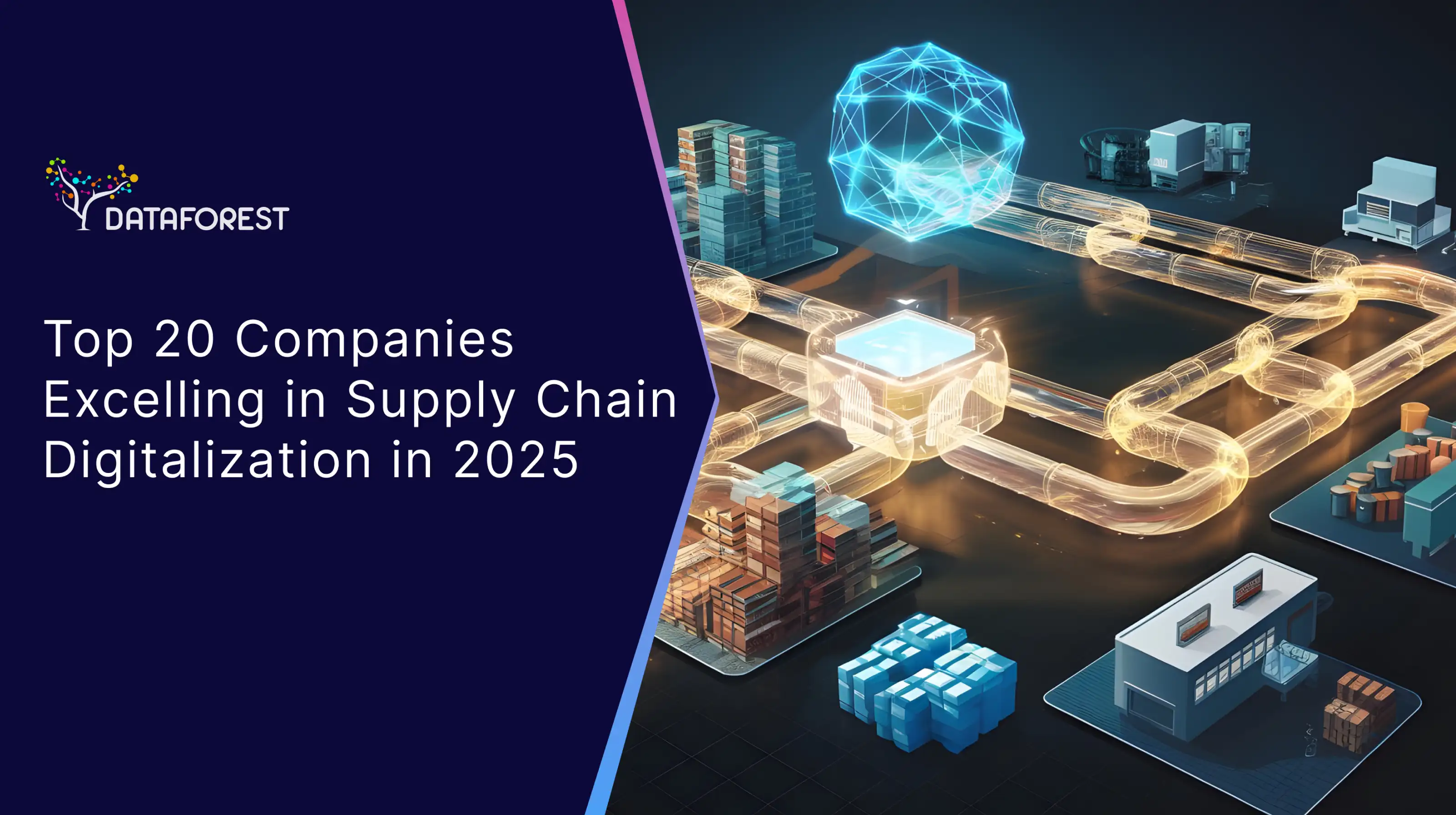



.svg)

%20(1).webp)

.webp)












